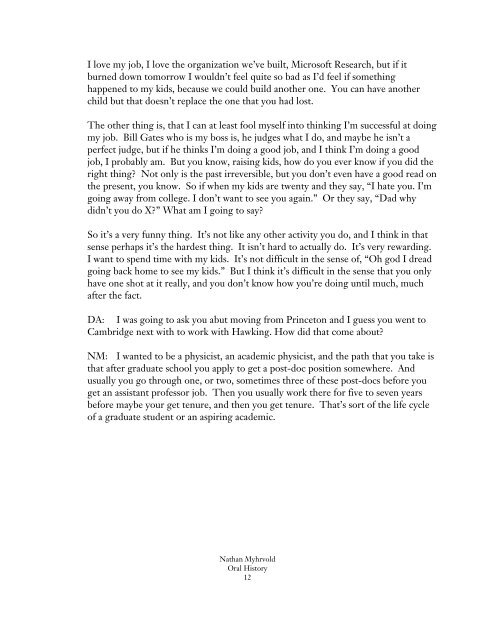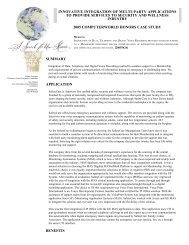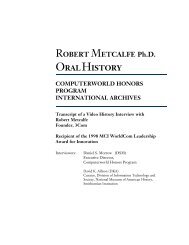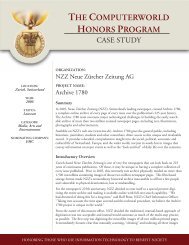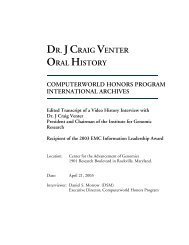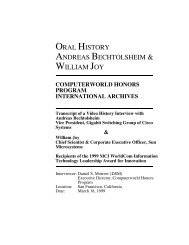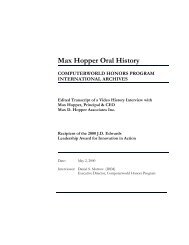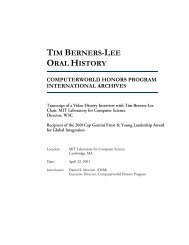NATHAN MYHRVOLD PhD ORAL HISTORY - The Computerworld ...
NATHAN MYHRVOLD PhD ORAL HISTORY - The Computerworld ...
NATHAN MYHRVOLD PhD ORAL HISTORY - The Computerworld ...
Create successful ePaper yourself
Turn your PDF publications into a flip-book with our unique Google optimized e-Paper software.
I love my job, I love the organization we’ve built, Microsoft Research, but if it<br />
burned down tomorrow I wouldn’t feel quite so bad as I’d feel if something<br />
happened to my kids, because we could build another one. You can have another<br />
child but that doesn’t replace the one that you had lost.<br />
<strong>The</strong> other thing is, that I can at least fool myself into thinking I’m successful at doing<br />
my job. Bill Gates who is my boss is, he judges what I do, and maybe he isn’t a<br />
perfect judge, but if he thinks I’m doing a good job, and I think I’m doing a good<br />
job, I probably am. But you know, raising kids, how do you ever know if you did the<br />
right thing? Not only is the past irreversible, but you don’t even have a good read on<br />
the present, you know. So if when my kids are twenty and they say, “I hate you. I’m<br />
going away from college. I don’t want to see you again.” Or they say, “Dad why<br />
didn’t you do X?” What am I going to say?<br />
So it’s a very funny thing. It’s not like any other activity you do, and I think in that<br />
sense perhaps it’s the hardest thing. It isn’t hard to actually do. It’s very rewarding.<br />
I want to spend time with my kids. It’s not difficult in the sense of, “Oh god I dread<br />
going back home to see my kids.” But I think it’s difficult in the sense that you only<br />
have one shot at it really, and you don’t know how you’re doing until much, much<br />
after the fact.<br />
DA: I was going to ask you abut moving from Princeton and I guess you went to<br />
Cambridge next with to work with Hawking. How did that come about?<br />
NM: I wanted to be a physicist, an academic physicist, and the path that you take is<br />
that after graduate school you apply to get a post-doc position somewhere. And<br />
usually you go through one, or two, sometimes three of these post-docs before you<br />
get an assistant professor job. <strong>The</strong>n you usually work there for five to seven years<br />
before maybe your get tenure, and then you get tenure. That’s sort of the life cycle<br />
of a graduate student or an aspiring academic.<br />
Nathan Myhrvold<br />
Oral History<br />
12


